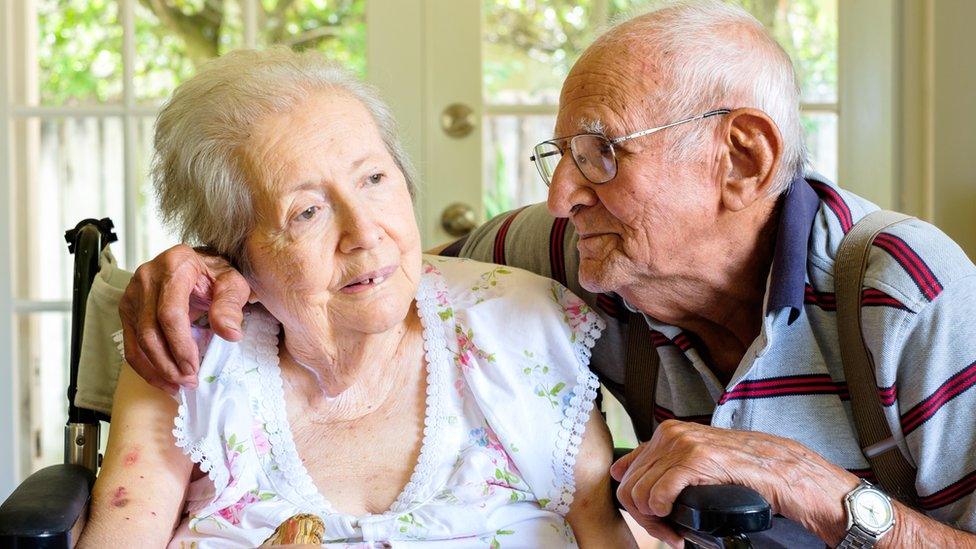Rethink for dementia respite care urged by commissioner
- Published
- comments
The Me Myself and I friendship club in Briton Ferry is highlighted as a great example of respite working well
A fundamental change is needed in respite services for people affected by dementia, the Older People's Commissioner has said.
Sarah Rochira said traditional respite that did not meet people's needs was detrimental to health and wellbeing.
The aim of respite is to give a temporary break for family members responsible for giving care.
But in a new report, Ms Rochira warned some carers were "on their knees".
The study, Rethinking Respite for People Affected by Dementia, said traditional respite services - such as overnight stays in care homes - often lacked flexibility and did not always deliver positive outcomes.
It also said that in the worst cases it could strip people with dementia of their independence, and a lack of support could leave carers at risk.
Ms Rochira said, at the moment, respite often focused on separating the carer from the person who needed care which was not always what people wanted.
Often they would rather time out from doing chores or being able to do things together, such as going on holiday or spending time outdoors.
Her report said even the language around respite needed to change because it often focused on "separation" and providing a "break from the burden of care" - which had negative connotations.

You might also be interested in these stories:

Ms Rochira said respite was not just about day centres and overnight stays but said regular and more flexible support was better - and cheaper - in many cases.
"I was asked recently - can we assume we're going to continue to rely on our carers? The answer is no - not unless we fundamentally provide them with more support and not unless we rethink how we provide respite," she said.
The report showed flexible respite was cheaper and often better for people with dementia.
Sarah Rochira said carers cannot be taken for granted
The commissioner drew on a mixture of academic research and the experiences of those affected by dementia, but wants a radical change.
Ms Rochira added: "Although my report focuses specifically on the experiences of people affected by dementia, the issues identified affect many others who need respite."
The Welsh Government said respite was one of its key national priorities for improving the lives of carers.
"We are providing local authorities with £3m a year to provide additional carers' respite," said a spokesman.
"In 2017/18, the funding supported more innovative flexible models which demonstrate that the carer and the cared for person are at the centre of the respite provision."
- Published9 January 2017

- Published23 April 2018
